10 de marzo 2022
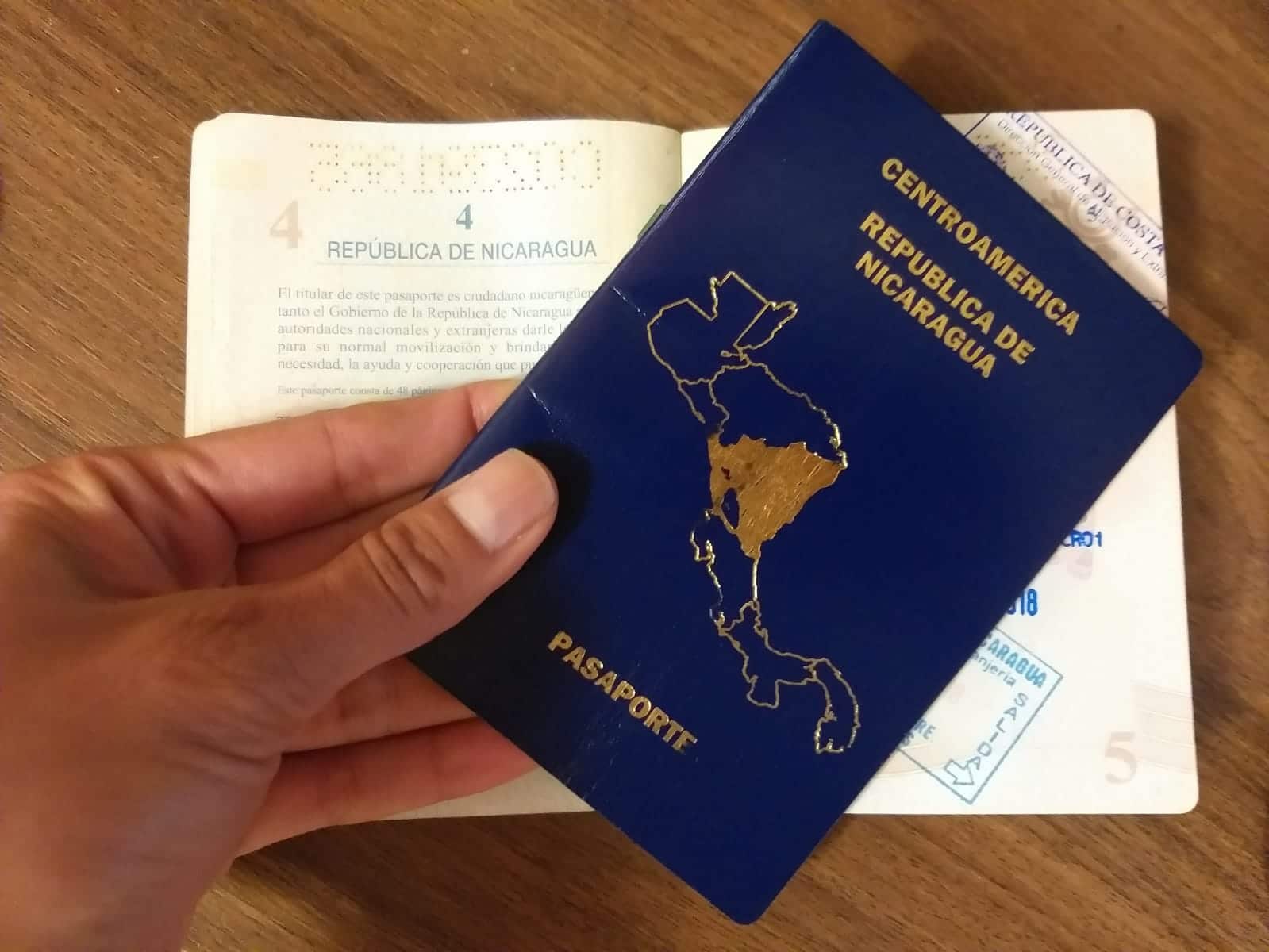
Nicaragua: Public Employees Hindered from Traveling to USA

PUBLICIDAD 1M
PUBLICIDAD 4D
PUBLICIDAD 5D
Confidencial talks with a journalist, a entrepreneur and a singer about how they’ve adapted to life in the neighboring country
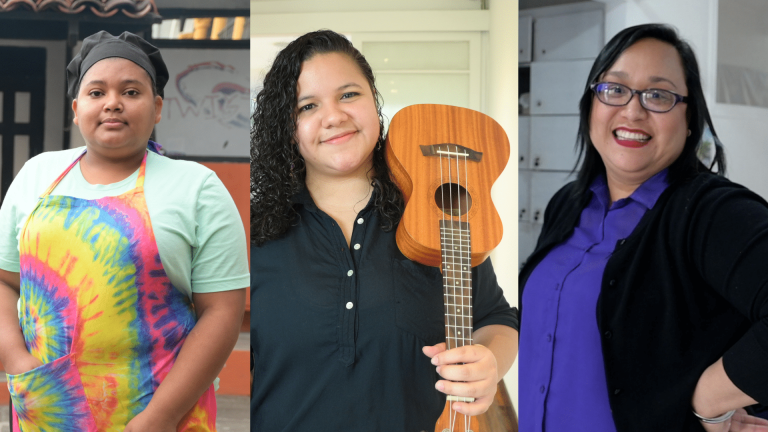
For decades, Costa Rica has been the chosen destination of thousands of Nicaraguans, who’ve opted to migrate there for political or economic reasons.
A 2018 study by the Inter-American Development Bank (IDB) revealed that since 2010, women have made up a little over half of the Nicaraguan immigrant population in that country.
Confidencial conversed with three such women this past March 8, about the challenges they face as women immigrants in Costa Rica.
Wendy Quintero Chavez is a journalist and human rights advocate.In 2018, she signed on with the Nicaraguan Center for Human Rights (Cenidh) to assist victims of the repression being unleashed by the Ortega-Murillo regime.
However, in December of the same year, the organization was abruptly stripped of its legal status, and essentially outlawed. The journalist was forced to leave Nicaragua for Costa Rica to safeguard her life and the safety of her family.
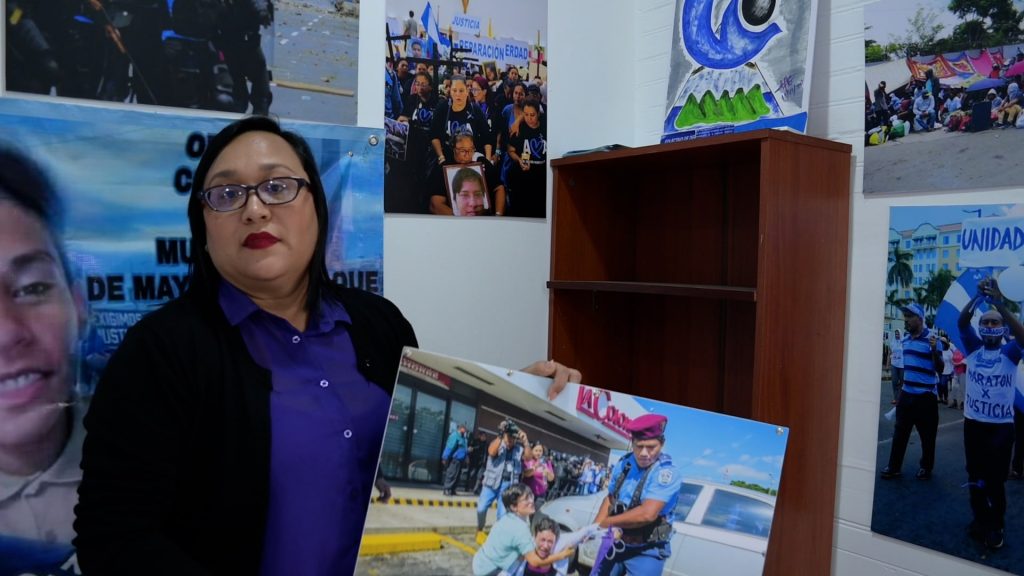
Wendy Quintero: journalist and human rights advocate. Photo: Alejandra Padilla / Confidencial
“The face of this struggle is a woman’s face, because when we women go into exile we don’t just leave by ourselves, but we drag our sons and daughters with us, because they’re part of us,” Wendy Quntero states.
After several months of exile, and amid the uncertainty of finding a new path, Wendy joined the Nunca Mas [Never again] Human Rights Collective, an organization founded by Nicaraguan human rights advocates exiled in Costa Rica. She notes, however, that not all female Nicaraguan immigrants have had this kind of opportunity for their leadership to be recognized. “There are many places where equity has improved, but there’s still a long way to go.”
Wendy notes that the mutual support among women immigrants in Costa Rica is key to making more visible the barriers they all face, and to confronting the difficulties. “I’ve discovered that there’s an enormous, wonderful network of solidarity among women,” she says.
Eveling Cuningham, 28, immigrated to Costa Rica with her children in May 2018, due to the political crisis in Nicaragua. “It’s hard for everyone, and I didn’t arrive alone but with three children,” the young woman tells us.
Given the difficulty finding work in the new country, Eveling opened a small business selling Nicaraguan food. “I began two and a half years ago, selling grilled meat outside my house,” she recalls.
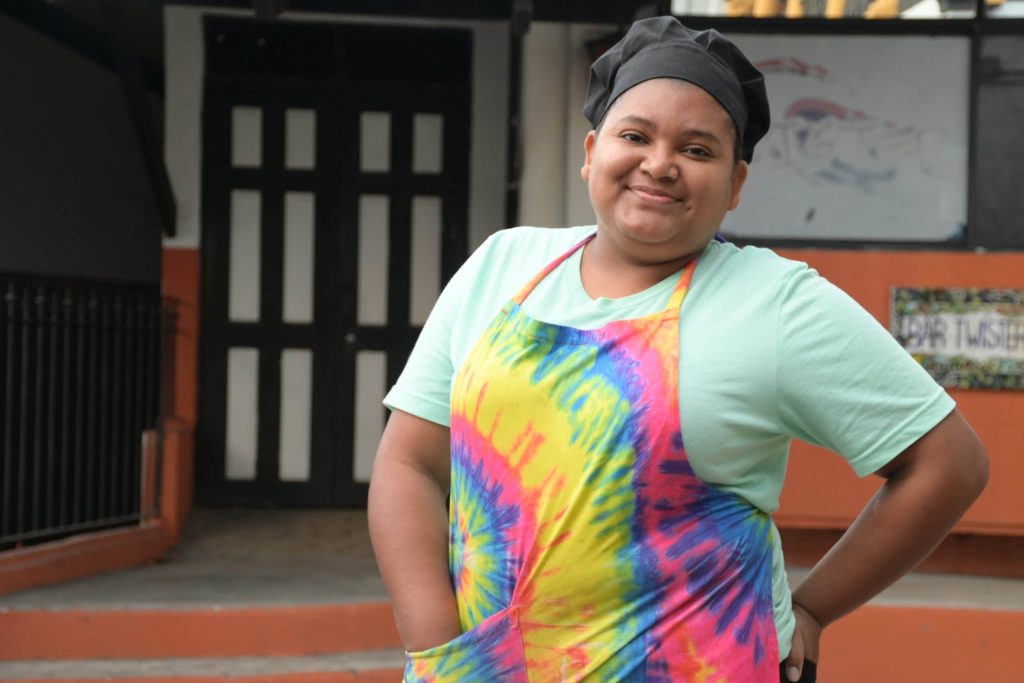
Eveling Cuningham had studied culinary arts in Nicaragua. Photo: Alejandra Padilla / Confidencial
At the beginning of 2020, she formally launched her business: “Eve’s Gourmet”, a small Nicaraguan restaurant located in San Jose’s “El Pueblo” shopping center. “Our product was very well received by both Costa Ricans and Nicaraguans,” she states.
Eveling Cuningham is part of the Pinolera Women’s Fair, a network of 20 Nicaraguan immigrant women in Costa Rica who seek ways to strengthen their business initiatives.
What Eveling admires most about the Nicaraguan immigrant women is their strength. “We’re admirable, we’re women who are capable of getting ahead.”
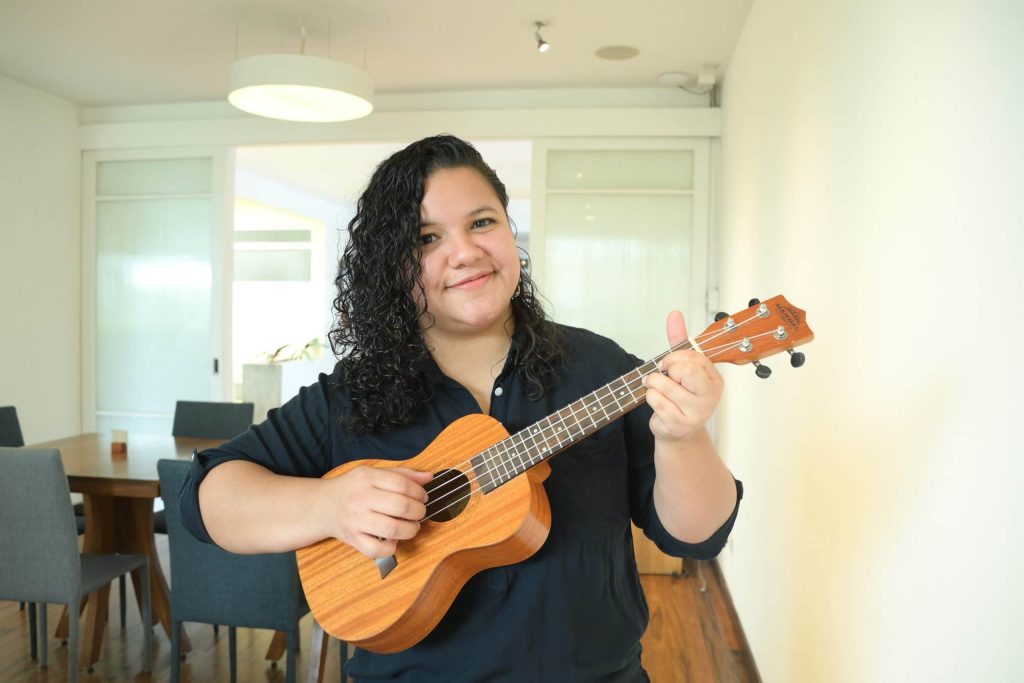
Olguita Acuña rehearsing for her next concert in Costa Rica. Photo: Alejandra Padilla / Confidencial
“I entered Costa Rica on September 11, 2018, just eleven days before my birthday, with my heart in my hands and my ukulele on my back,” recalls singer and activist Olguita Acuña.
In Nicaragua, music had been only a hobby for Acuña, but in Costa Rica it became a needed source of income to survive. “I took a look at all the resources I had at hand, and what I had was the ukulele. So, I took to singing on the street, in bars, and little by little people began to know me,” she recalls.
Opening doors as a performer in a foreign country hasn’t been easy. “Personally, yes, I’ve suffered discrimination for being a woman, for being diverse and for being a singer,” she admits.
“At first, they saw me more as a decoration in the singing world, instead of a person who could have a voice, until they gave me the opportunity to do so,” she stressed.
Acuña says music has also become her medium for denouncing the discrimination that exists against immigrant women, and shining a spotlight on her “important role” in society.
“I see the importance of women empowering women, because when we lift each other up, we can really make visible our efforts and our struggles,” she concludes.
This article was originally published in Spanish in Confidencial and translated by Havana Times
Archivado como:
PUBLICIDAD 3M
Periodista y productora audiovisual nicaragüense. Licenciada en Ciencias Políticas. Cofundadora de varias organizaciones de sociedad civil vinculadas a la lucha por los derechos de la comunidad estudiantil en Nicaragua. También se ha desempaño en proyectos de transformación digital para empresas y organizaciones.
PUBLICIDAD 3D